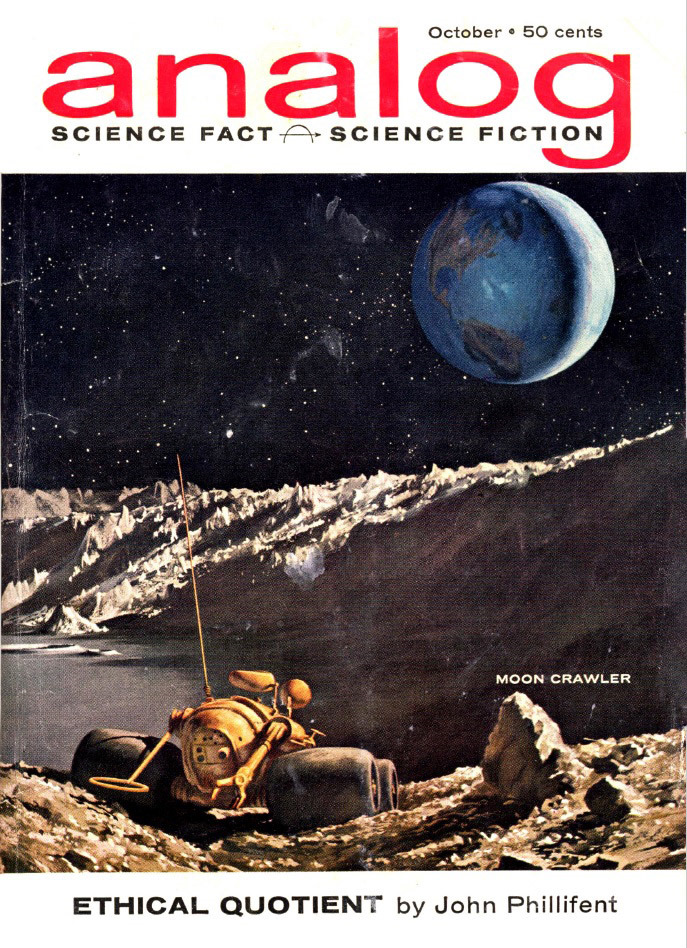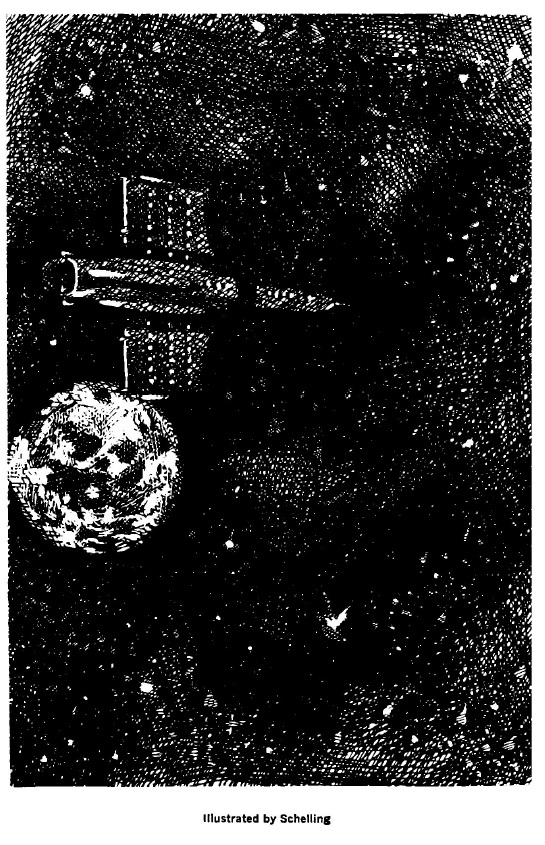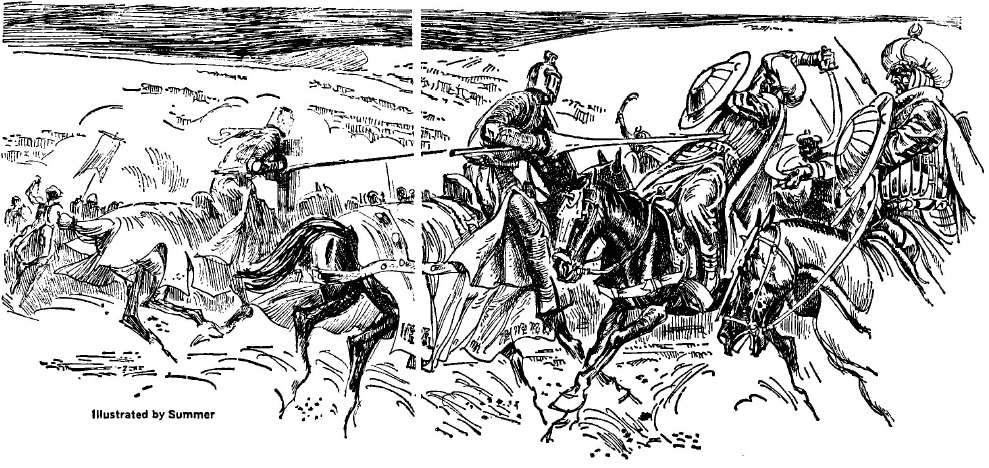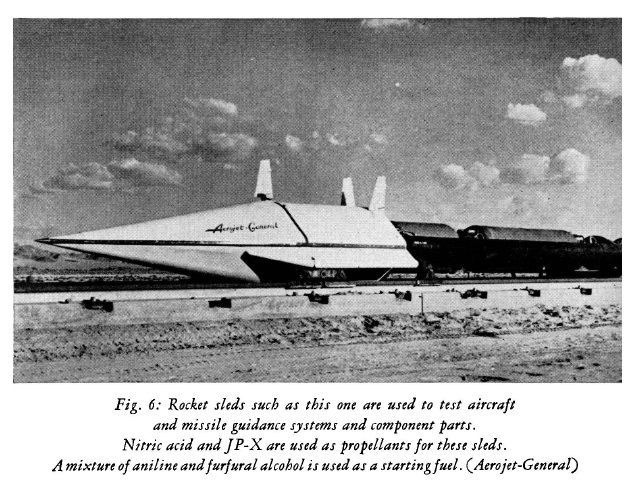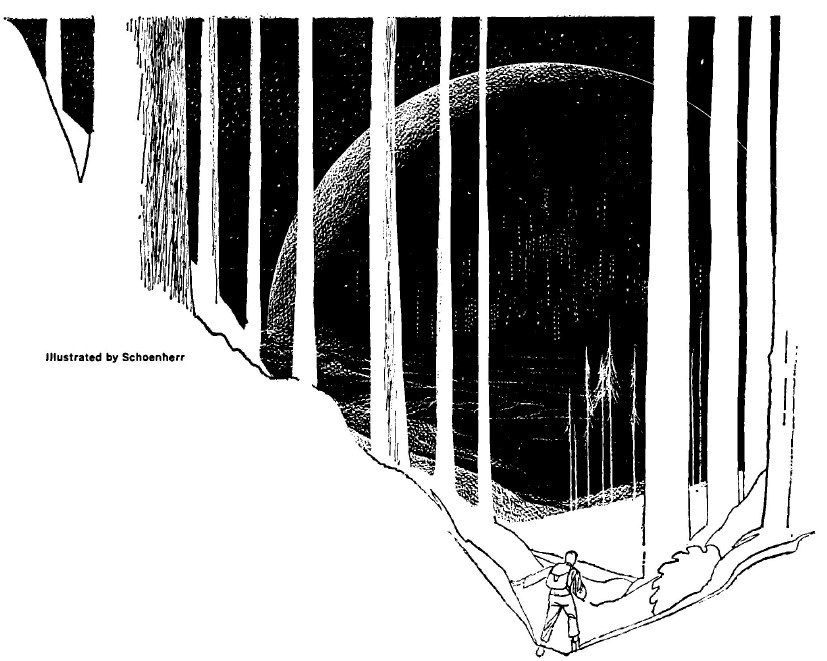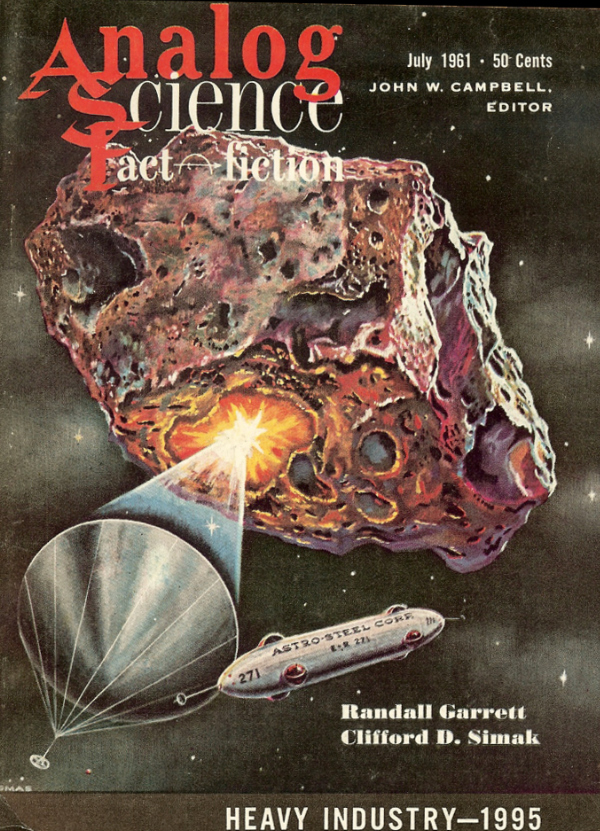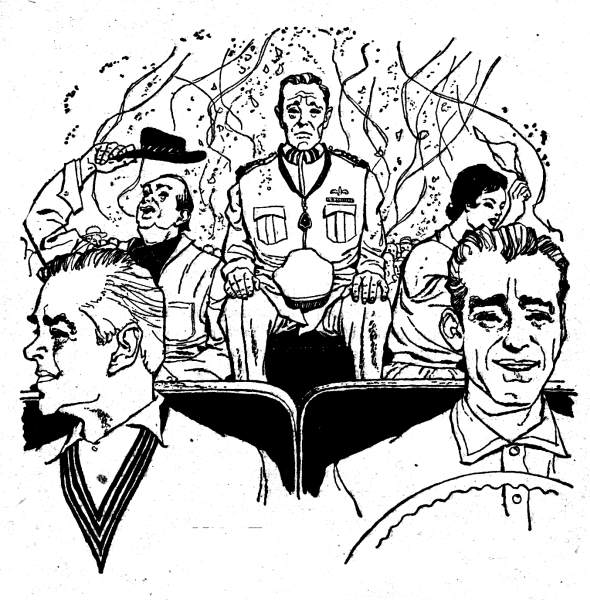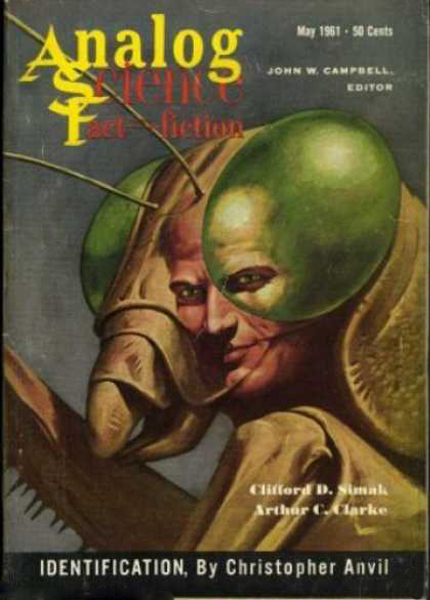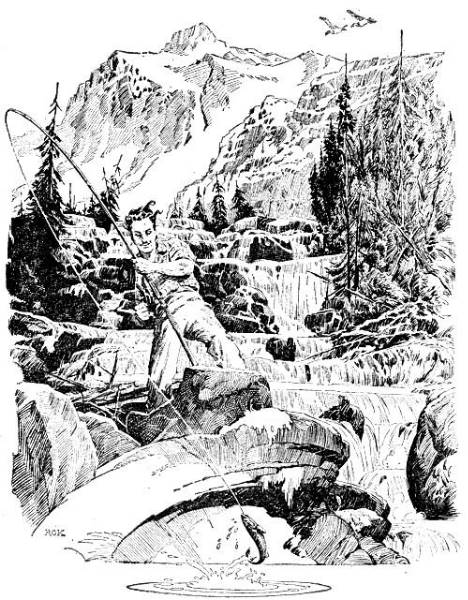[While you're reading this article, why not tune in to KGJ, Radio Galactic Journey, playing all the current hits: pop, rock, soul, folk, jazz, country — it's the tops, pops…]

by Gideon Marcus
February has been a busy month for the Journey in terms of fanac (Fan Activity for you normal folks), including a presentation at the Mysterious Galaxy bookstore in San Diego and a panel at a small Los Angeles convention last weekend. And the pace hasn't slackened: tonight, I'll be giving a talk on the Space Race at, of all places, a space-themed pub. (And if I met you at the event, be sure to drop me a line. I love meeting folks from all eras…)

This month's Analog Science Fiction, that great faded lady of the genre, has also been lively. Not only has it recently grown from digest to slick-sized (so as to take shelf space next to other respectable mags like Time and Scientific American), but it features a host of stories whose common theme seems to be rebellion against a stultifying system.
So let's check out the March 1963 Analog, shall we?
Natural Resources in Space, by John W. Campbell, Jr.

Apparently Editor Campbell couldn't find anyone to write a science article for him this month…or nothing he got met his exacting standards (i.e. didn't involve quack science like psychics, dowsing, or reactionless drives). On the other hand, what we got in the way of nonfiction this month is a pleasantly crunchy piece on the location and accessibility of valuable materials in the solar system — from the iron of the asteroids to the helium of the gas giants. Now we just need to get there! Three stars.
Frigid Fracas (Part 1 of 2), by Mack Reynolds

Joe Mauser, Mercenary supreme, is back. Last time we saw him, he was wending his way up through the rigid caste system of 21st Century "Industrial Feudalism," his only opportunity for social climbing being to fight in live-fire corporate disputes. These "fracases," broadcast on Telly to a largely unemployed, tranquilized populace, are a modern-day Bread and Circuses. And they're tightly regulated. No weapons beyond those available in 1900 are allowed; this produces just enough slaughter to entertain, but the weapons pose no threat to a civilized, otherwise peaceful world.
This time around, the ambitious Major stakes everything on a repeat of his last performance, flying an unmotored sailplane on a reconnaissance patrol. But this time, he goes armed with a machine gun…because the opposing team has also discovered the benefits of taking the high ground. Though this is just Part 1 of a two-parter, and despite featuring a fair bit of exposition, this installment makes a decent stand-alone story — and the world Reynold paints is vivid, if not particularly plausible. Four stars.
All Day Wednesday, by Richard Olin

Ernie, a working stiff in a union factory, dreams of the day when he can finally stop worrying about it all. That day will never come, because the day he's in won't ever end. It's a weird, Twilight Zoney piece that doesn't make a lot of sense, but it's nicely rendered. Three stars.
The Happy Man, by Gerald W. Page

Centuries from now, humanity has left for the stars, leaving behind the placid stay-behinds, content to spend their time in suspended animation, dreaming their own private Heavens. But one fellow won't accept an artificial paradise and becomes a rebel, raiding the remaining settlements for food and other plunder. To each their own poison, right? A decent tale with a surprising ending. Three stars.
Not in the Literature, by Christopher Anvil

Chris Anvil is an Analog perennial whose work tends toward the satirical. When he publishes elsewhere, his work can be quite good, but when he writes for Campbell, it tends to take on a self-satisfied tone. Literature is one of his better efforts in Analog, about an alternate timeline (or another planet) where the history of science differs from our own. They have experimental rocketships, airships, advanced metallurgy and chemistry, yet no conception of electricity. When a failed chemist offers a wild plan to conduct heat down a wire (Dig it — current flows!), he is met with derision and dismissal. Cute, and my nephew, David, liked it. Three stars.
Spanner in the Works, by J. T. McIntosh

Finally, we have a Spy vs. Spy tale…except the other Spy is not only supposed to be a good guy, it's not a guy at all! Rather, a capable counter espionage agent must discover why the Bureau's hotshot computer has suddenly started giving useless advice. A pleasant potboiler, although it's very much in the "Problem; Solution," category of stories, sort of the SF equivalent of the locked room mystery. Good stuff…for the early 1950s. Three stars.

This being the end of the month, it's time to see how the monthly sci-fi magazines fared in comparison with each other. This time around, we had seven, more than the Journey has ever reviewed at a time. Thank goodness we have the writers to cover it (ten at last count…) If you added up all the four and five-star stories, the stuff worth reading, you'd have enough to fill two whole magazines. That's pretty good. Only three out of forty eight stories were by women, continuing the dismal trend of the last several months. That's not so good.
For you baseball fans, here are the actual numbers: IF secured the top spot with 3.3 stars, followed by Analog (3.2), Worlds of Tomorrow (3), Fantasy and Science Fiction (just 2.7, but featuring the month's best story), Fantastic (2.7), New Worlds (2.6), and finally, Amazing (2.3). But all of them have something to recommend them, regardless of the score.
Be sure to stay tuned. Next up, Jason Sacks is back with a look at National Comics…because you knew he couldn't let my recent praise of Marvel go unanswered. See you then!
[P.S. If you registered for WorldCon this year, please consider nominating Galactic Journey for the "Best Fanzine" Hugo. Your ballot should have arrived by now…]









